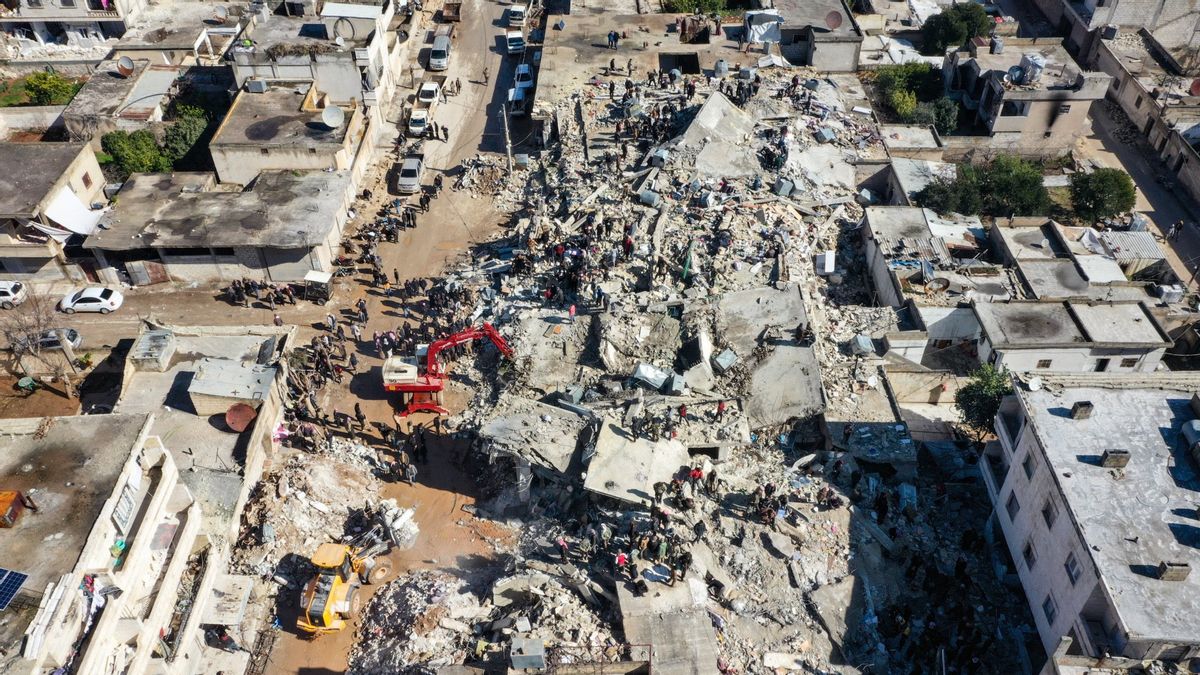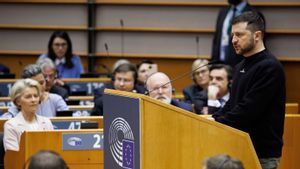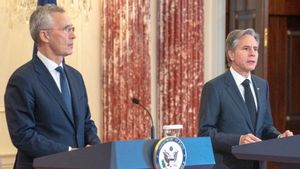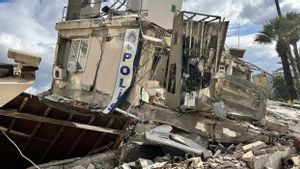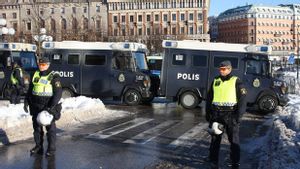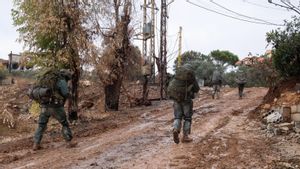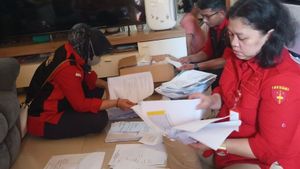JAKARTA - High-ranking United Nations (UN) officials are pushing for more access to humanitarian aid from Turkey to Syria, as the number of earthquake victims in the two countries continues to grow.
The death toll following the earthquakes that hit Turkey and Syria on Monday has risen to at least 21.051, according to authorities.
In Turkey, the death toll has risen to at least 17.674, and the number of injured has reached 72.879, Vice President Fuat Oktay said Thursday, as reported by CNN February 10.
Meanwhile in Syria, at least 3.377 people have died, including 2.030 in rebel-held areas in the northwest, according to the White Helmets civil defense group, and 1.347 deaths in government-controlled parts of Syria, according to Syrian state media.
The number of people injured in Syria in all affected areas rose to 5.245. 2.295 in government-held areas and 2.950 in rebel-held areas.
At least 78.124 people in Syria and Turkey were injured after the quake, according to figures from the Turkish government, the White Helmets and Syrian state media.
Separately, UN Secretary-General Antonio Guterres on Thursday pushed for more aid access to northwestern Syria from Turkey, seeking an expanded mandate from the UN Security Council to allow UN aid to be sent through more than one border crossing.
Speaking to reporters, Guterres said now was the time to explore all possible routes to get aid and personnel to rebel-held areas affected by the quake.

"Many non-UN aid agencies are already sending via other crossings," Guterres told reporters, as quoted by Reuters.
"I would be very happy if, in relation to the United Nations, it would be possible to do so in as many crossings as possible," he continued.
Since 2014, the United Nations has been able to provide aid to millions of people in need in northwestern Syria from Turkey under a Security Council mandate. Currently limited to using only one border crossing.
The Security Council's mandate was necessary, as the Syrian government views sending aid across its borders as a violation of its sovereignty and territorial integrity, saying aid must be delivered across the frontline from within the war-torn country.
Guterres did not say whether he had specifically asked the Syrian government to allow aid shipments through more border crossings, but he did point to the ability of the 15-member UN Security Council to approve such a measure.
"Obviously we need massive support," Guterres said.
"I would, of course, be very happy if the Security Council could reach a consensus to allow more crossings to be used," he said.
Meanwhile, UN spokesman Stephane Dujarric said UN officials would begin talks with members of the Security Council, to see if aid access to Syria from Turkey could be expanded.
However, Syria's ally and veto-wielding council, Russia, is unlikely to agree to mandating further border crossings.
"Expanding cross-line deliveries is an obvious solution. The United Nations has all the necessary tools and Damascus is cooperating on this," Russia's Deputy UN Ambassador Dmitry Polyanskiy told Reuters on Thursday.
Deliveries of UN aid to northwestern Syria from Turkey resumed on Thursday after being briefly halted by the earthquake.
SEE ALSO:
UN aid chief Martin Griffiths will visit Gaziantep in Turkey and Aleppo and Damascus in Syria in the coming days to assess needs after the earthquake, Guterres said.
It is known, the UN Security Council initially authorized the delivery of aid to Syria at four points from Turkey, Iraq and Jordan in 2014.
In 2020 the UN Security Council has reduced access to one crossing which is used now due to opposition from Russia and China.
UN assistance from Turkey reached 2.7 million people per month in northwestern Syria last year, compared to the 43.500 people per month receiving aid from routes within Syria since August 2021.
The English, Chinese, Japanese, Arabic, and French versions are automatically generated by the AI. So there may still be inaccuracies in translating, please always see Indonesian as our main language. (system supported by DigitalSiber.id)
